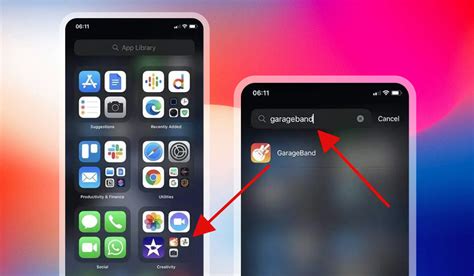
iPhone users are urgently advised to immediately update their devices to iOS 17.5 following the discovery of a significant security vulnerability that is actively being exploited. Failure to update could leave iPhones susceptible to malware, spyware, and unauthorized access to sensitive data. Apple has released this update to address the critical flaw, urging all users to install it without delay.
The urgency stems from reports indicating that hackers are already leveraging this vulnerability to compromise iPhones. Security experts warn that the potential consequences of not updating are severe, ranging from data theft to complete device control by malicious actors. “We urge all users to update to iOS 17.5 as soon as possible,” stated Apple in its security advisory. “This update provides important security fixes and resolves a critical vulnerability that is being actively exploited.”
Critical Security Flaw Exploited in iPhones: A Deep Dive into iOS 17.5 Update
Apple has issued an emergency security update, iOS 17.5, to patch a critical vulnerability actively being exploited by malicious actors. This vulnerability, if left unaddressed, could allow attackers to execute arbitrary code, potentially leading to malware installation, data theft, and complete device compromise. Experts are strongly advising all iPhone users to update their devices immediately to mitigate the risk.
The vulnerability was discovered in the core operating system, affecting a wide range of iPhone models. According to Apple’s security bulletin, the flaw allows attackers to gain elevated privileges and execute malicious code through specially crafted applications or web pages. The specific nature of the vulnerability has not been publicly disclosed to prevent further exploitation before users have a chance to update their devices. However, the fact that Apple is actively pushing the update suggests the threat is both significant and widespread.
“The fact that Apple released this update so quickly and is emphasizing its importance highlights the severity of the vulnerability,” said a cybersecurity expert at a leading security firm. “Users should not delay in installing this update, as the longer they wait, the greater the risk of being compromised.”
The update, iOS 17.5, includes a fix for this critical vulnerability, as well as other security enhancements and bug fixes. Apple has not released specific details on how the vulnerability is being exploited, but it is believed that attackers are using phishing campaigns and malicious websites to trick users into installing compromised applications or visiting infected web pages.
Who is Affected?
All iPhone users running older versions of iOS are potentially affected. While Apple has not explicitly stated which specific models are vulnerable, it is generally recommended that all users update to the latest version of iOS to ensure they are protected against the latest threats. This includes users with older iPhone models, as well as those with the latest iPhone 15 series.
“It’s important to note that even if you haven’t noticed any unusual activity on your device, you could still be vulnerable,” cautioned the cybersecurity expert. “The vulnerability could be silently exploited in the background without any noticeable symptoms.”
How to Update Your iPhone to iOS 17.5
Updating your iPhone to iOS 17.5 is a simple process that can be completed in a few minutes. To update your device, follow these steps:
- Connect to Wi-Fi: Ensure your iPhone is connected to a stable Wi-Fi network. This will ensure that the update can be downloaded quickly and without interruption.
- Open Settings: Tap on the “Settings” app on your iPhone’s home screen.
- Tap General: Scroll down and tap on the “General” option.
- Tap Software Update: Tap on the “Software Update” option. Your iPhone will automatically check for available updates.
- Download and Install: If iOS 17.5 is available, tap on the “Download and Install” button. You may be prompted to enter your passcode to confirm the update.
- Agree to Terms and Conditions: Review the terms and conditions and tap on the “Agree” button.
- Wait for the Update to Download and Install: The update will now download and install on your iPhone. This process may take several minutes, depending on your internet connection speed.
- Restart Your iPhone: Once the update is complete, your iPhone will automatically restart.
Additional Security Measures
In addition to updating to iOS 17.5, users are also advised to take the following additional security measures to protect their iPhones:
- Be wary of phishing scams: Be cautious of suspicious emails, text messages, and phone calls that ask you to click on links or provide personal information. Phishing scams are a common way for attackers to trick users into installing malware or visiting infected websites.
- Only download apps from the App Store: Avoid downloading apps from unofficial sources, as these apps may contain malware. The App Store has a strict review process to ensure that apps are safe and secure.
- Use a strong passcode: Use a strong and unique passcode to protect your iPhone from unauthorized access. Avoid using easily guessable passcodes, such as your birthday or address.
- Enable two-factor authentication: Enable two-factor authentication for all of your important accounts, such as your Apple ID, email account, and social media accounts. This will add an extra layer of security to your accounts and make it more difficult for attackers to gain access.
- Keep your apps updated: Keep all of your apps updated to the latest versions. App updates often include security fixes that address vulnerabilities.
- Regularly back up your iPhone: Regularly back up your iPhone to iCloud or your computer. This will ensure that you can restore your data if your iPhone is lost, stolen, or damaged.
- Install a mobile security app: Consider installing a mobile security app to scan your iPhone for malware and other security threats. There are many reputable mobile security apps available in the App Store.
- Review App Permissions Regularly: Take time to review the permissions you’ve granted to various apps on your iPhone. Revoke permissions for apps that don’t need them or that you no longer use. This can minimize the potential damage if an app is compromised.
The Broader Context of iPhone Security
This security vulnerability highlights the ongoing challenges of protecting mobile devices from cyberattacks. As iPhones become increasingly integrated into our daily lives, they also become more attractive targets for attackers. Apple has a strong track record of providing security updates for its devices, but vulnerabilities can still be discovered and exploited.
“No operating system is completely immune to vulnerabilities,” said the cybersecurity expert. “It’s a constant cat-and-mouse game between security researchers and attackers. The key is to be proactive and take steps to protect your devices.”
Apple’s response to this vulnerability demonstrates its commitment to security. The company quickly released a fix and is urging users to update their devices. However, it is up to users to take action and install the update to protect themselves from the potential consequences of this vulnerability.
The incident serves as a reminder that staying vigilant about security is essential for all iPhone users. By updating to the latest version of iOS and following the additional security measures outlined above, users can significantly reduce their risk of being compromised.
The constant barrage of cyber threats underscores the importance of user awareness and proactive security measures. Relying solely on the device manufacturer’s security updates is insufficient; users must adopt a multi-layered approach to protect their personal information and devices.
Previous Security Issues
This isn’t the first time Apple has had to release emergency security updates for its iPhones. In the past, vulnerabilities have been discovered in various components of iOS, including the web browser, messaging app, and kernel. These vulnerabilities have been exploited by attackers to steal data, install malware, and even remotely control iPhones.
In 2016, Apple released an emergency security update to fix a vulnerability that was being used to install spyware on iPhones. The spyware, known as Pegasus, was capable of intercepting calls, reading text messages, and tracking location data. The vulnerability was discovered by security researchers who were investigating the iPhone of a human rights activist.
In 2019, Apple released an emergency security update to fix a vulnerability that allowed attackers to remotely execute code on iPhones. The vulnerability was discovered by Google’s Project Zero team and was being actively exploited in the wild.
These past incidents highlight the importance of staying vigilant about security and installing updates as soon as they are released. While Apple works hard to protect its devices from cyberattacks, vulnerabilities can still be discovered and exploited.
Impact on Enterprise Users
The iOS 17.5 vulnerability also poses a significant risk to enterprise users. Many businesses rely on iPhones for critical business functions, such as email, communication, and data access. If an iPhone is compromised, it could provide attackers with access to sensitive company data.
Businesses should take the following steps to protect their iPhones from the iOS 17.5 vulnerability:
- Ensure all employees update their iPhones to iOS 17.5: This is the most important step to mitigate the risk.
- Implement mobile device management (MDM) policies: MDM policies can be used to enforce security settings on iPhones, such as requiring strong passcodes and restricting the installation of apps from unofficial sources.
- Provide security awareness training to employees: Employees should be trained on how to identify and avoid phishing scams and other security threats.
- Monitor iPhone activity for suspicious behavior: Businesses should monitor iPhone activity for suspicious behavior, such as unusual data usage or unauthorized access attempts.
By taking these steps, businesses can significantly reduce their risk of being compromised by the iOS 17.5 vulnerability.
Future of iPhone Security
Apple is constantly working to improve the security of its iPhones. The company has a dedicated team of security engineers who are responsible for identifying and fixing vulnerabilities. Apple also works closely with security researchers and the broader security community to stay ahead of the latest threats.
In recent years, Apple has introduced several new security features to iOS, such as:
- BlastDoor: A security mechanism that isolates and analyzes incoming data in the Messages app to prevent exploits.
- Privacy Manifests: A new feature that requires app developers to disclose how they collect and use user data.
- Passkeys: A new authentication method that replaces passwords with cryptographic keys.
These new security features, along with Apple’s ongoing commitment to security updates, will help to protect iPhones from future cyberattacks. However, it is important to remember that no device is completely immune to vulnerabilities. Users must continue to be vigilant about security and take steps to protect their devices.
The Role of the User in Security
While Apple provides a robust security framework for iPhones, the ultimate responsibility for security rests with the user. Users must be proactive in protecting their devices by:
- Staying informed about the latest security threats: Stay up-to-date on the latest security threats and vulnerabilities by reading security news and following security experts on social media.
- Practicing safe online habits: Be careful about clicking on links or opening attachments from unknown sources. Avoid visiting suspicious websites.
- Protecting their personal information: Be careful about sharing personal information online. Use strong passwords and enable two-factor authentication.
By taking these steps, users can significantly reduce their risk of being compromised by cyberattacks. The combination of Apple’s security measures and user vigilance is the best defense against the ever-evolving threat landscape.
Conclusion
The emergency security update, iOS 17.5, is a critical update that all iPhone users should install immediately. The vulnerability being addressed is actively being exploited by malicious actors and could lead to serious consequences, such as data theft and complete device compromise. By updating to iOS 17.5 and following the additional security measures outlined above, users can significantly reduce their risk of being compromised. The incident serves as a reminder that staying vigilant about security is essential for all iPhone users.
The swift release of iOS 17.5 underscores Apple’s commitment to protecting its users from cyber threats. However, the responsibility for security is shared between Apple and its users. By staying informed, practicing safe online habits, and taking proactive steps to protect their devices, users can significantly reduce their risk of being compromised. The ongoing battle against cyber threats requires a collaborative effort between technology providers and users to ensure a secure digital environment. The vulnerability highlights the complex and ever-evolving landscape of cybersecurity. As technology advances, so do the tactics of malicious actors. Staying ahead of these threats requires constant vigilance, proactive security measures, and a collaborative effort between technology providers, security researchers, and users. The iOS 17.5 update is a crucial step in protecting iPhones from the latest threats, but it is just one piece of the puzzle.
Frequently Asked Questions (FAQ)
Q1: What is iOS 17.5 and why is it so important to install?
A1: iOS 17.5 is an emergency security update released by Apple to address a critical vulnerability that is actively being exploited by hackers. This vulnerability could allow attackers to gain unauthorized access to your iPhone, potentially leading to data theft, malware installation, and complete device control. Installing iOS 17.5 patches this vulnerability and protects your device from these threats. As Apple stated, “This update provides important security fixes and resolves a critical vulnerability that is being actively exploited.”
Q2: Which iPhone models are affected by this vulnerability?
A2: While Apple hasn’t specified exact models, it’s generally recommended that all iPhone users running older versions of iOS update to iOS 17.5. This includes users with older iPhone models as well as the latest iPhone 15 series. The security bulletin suggests a wide range of devices are potentially at risk. The cybersecurity expert quoted in the original article emphasized: “It’s important to note that even if you haven’t noticed any unusual activity on your device, you could still be vulnerable.”
Q3: How do I update my iPhone to iOS 17.5?
A3: Updating your iPhone is straightforward. Connect to Wi-Fi, go to Settings > General > Software Update, and tap “Download and Install” if iOS 17.5 is available. You may need to enter your passcode and agree to the terms and conditions. The update process may take several minutes depending on your internet speed.
Q4: What if I can’t update to iOS 17.5 right now? Are there any temporary measures I can take to protect my iPhone?
A4: If you can’t update immediately, be extra cautious. Avoid clicking on links in suspicious emails or text messages, only download apps from the App Store, and use a strong passcode. Enabling two-factor authentication for your Apple ID and other important accounts adds an extra layer of security. As a cybersecurity expert mentioned, proactive measures are key even with updates available. It is also highly advised that you update as soon as you are able to do so as the vulnerability is actively being exploited.
Q5: Besides updating to iOS 17.5, what other security measures should I take to protect my iPhone from future threats?
A5: In addition to updating, adopt a multi-layered security approach. Be wary of phishing scams, regularly review app permissions, keep all your apps updated, and back up your iPhone regularly. Consider installing a mobile security app for extra protection. Education and caution are vital. For added security, consider changing your Apple ID password to a strong, unique password to further secure your account in case of any potential compromise.









